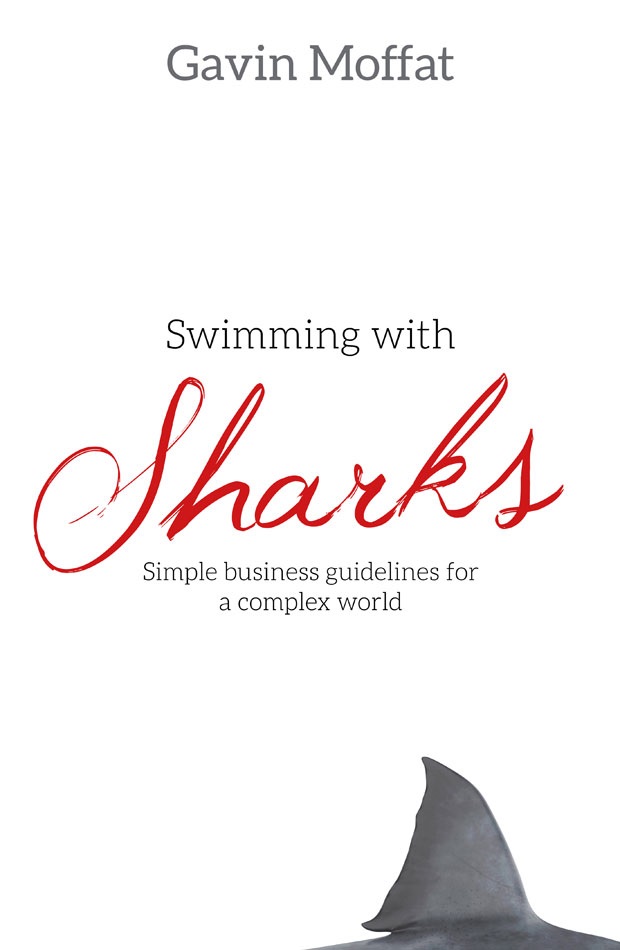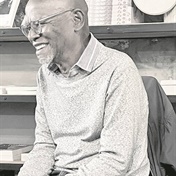
In this extract from Swimming with Sharks – Simple business guidelines for a complex world by Gavin Moffat, he looks at how the culture of a corporation is created. And it’s not about the values on the wall or the foosball table.
Swimming with Sharks – Simple business guidelines for a complex world by Gavin Moffat.
Tracey McDonald Publishers.
Available in all good bookstores; recommended retail price of R230.
Conversations around corporate culture have been going on for decades, almost as long as corporates have existed.
But it’s only been in recent times that corporate culture is being discussed as if it is separate from the business.
Except that it is not.
The culture of a corporation is created, carried and felt by the people in the company.
Without them a corporate is nothing more than buildings, furniture and equipment.
Today the corporate culture of a business is understood in terms of its ability to have honest and trustful relationships with its customers and staff.
The culture is what customers see, feel, buy and experience – whether you want it to be or not.
Culture is furthermore a way of creating value for employees and customers.
Customer-centricity places customers at the centre of the business, and culture should place employees at its heart.
The corporate culture expresses what the business stands for.
It says, with words and without them: this is how we do things, and this is how we create value in the world.
Culture becomes visible through what the brand stands for inside the company and out.
If the culture is all about cost saving, you’ll see it in how cash flow is managed smartly, or in how corners are cut.
If it’s all about sales, everything will centre on the numbers. I
f the culture focuses on competitors, all conversations will be about how the business is better or worse than other players in the same space.
While each of these focuses has its place, you cannot base your corporate culture on any of them.
There are hundreds of words to describe a corporate culture.
In fact, I found a website that lists no fewer than 500 such descriptors (which shows that just about any word will do when you want to talk about culture). Words such as teamwork, excellence and fun embody how the organisation feels about itself, its customers and its world.
They also predict behaviour. Let’s take respect as an example. A respectful culture implies, for instance, that you would believe employees first and question them afterwards – the opposite of a shoot-first-identify-later policy.
Working from a basis of respect you will also take customer complaints seriously, instead of assuming they are trying to pull a fast one. (Just before this book was published, I was fighting with a mobile operator about data fraud. Instead of respecting my complaint and investigating it, their point of departure is that I was the one at fault. Respect? Not so much and I wonder how this impacts the staff of this organisation.)
Increasingly, corporate cultures are required to take a view wider than their own business.
The days of chasing short-term goals to keep shareholders happy are numbered.
Agreement is growing that companies that put shareholders first in everything are misguided.
This view is borne out by triple bottom line reporting. It is no longer accepted for companies to pillage and plunder the environment in the name of production. In addition to considering the well-being of all their stakeholders, companies must leave the world in a better state than they found it.
In my experience, corporate culture is most often three to eight aspirational values stuck up on a wall. The problem with this is that the values remain stuck on the wall – they don’t go anywhere or do anything, because the senior guys don’t live them and therefore, no one else does.
Some research shows that corporate culture mirrors the CEO’s personal values. For instance, if the CEO values being questioned, the company’s culture will rest on questioning the status quo to produce better results.
Conversely, if the CEO believes he is always right, the company culture will not value or tolerate critical questions.
If the CEO doesn’t live the values, there is immediate and profound incongruence.
You can’t have respect listed as a value on a wall, but then don’t pay your employees at least an industry average wage or watch them like a hawk as they clock in and out because you believe they will steal time if you don’t.
The result of such incongruence is that nobody in the organisation lives the values.
People will do what they see; they follow the senior team’s example.
“Don’t do what I do, do what I say” doesn’t work with children – what makes you think it will work with adults?
Doing what you say is a cornerstone of servant leadership. Such behaviour tells people they can rely on you, that you are authentic and have integrity, and that you do things for the right reasons.
This stands CEOs in good stead when they must take tough decisions in the interest of sustainability.
I think we’ve moved beyond the question of whether corporate culture, and the difference it makes, can be measured.
The jury is no longer out. We know it counts. A lot.
Just one case in point is Alan Mulally. He took over as CEO of Ford in 2006 when the company was on the ropes.
Through value-based leadership he created the ‘One Ford’ culture, which is widely credited for one of the most remarkable turnarounds in the automotive industry.
Mulally put a simple set of core values in place that told all stakeholders what Ford stood for. He then created the processes to achieve the company’s goals and empowered employees to do so.
Mulally’s tenure at Ford was a stunning example of corporate culture in action.
Culture is not about perks. While campuses with onsite gyms, gourmet canteens, childcare and foosball tables attract talent, these benefits do not amount to a long-term strategy that builds corporate culture.
Culture is determined by how the CEO arrives at and leaves work, how many people she knows and greets, and which values she brings to life.
Almost three decades of working with companies has convinced me that the single most important factor to having a healthy corporate culture is the ability of the CEO and the senior team to hold a view of the company that is concerned with the well-being of all its stakeholders.
It’s not about the values on the wall. Or the foosball table.




 Publications
Publications
 Partners
Partners








